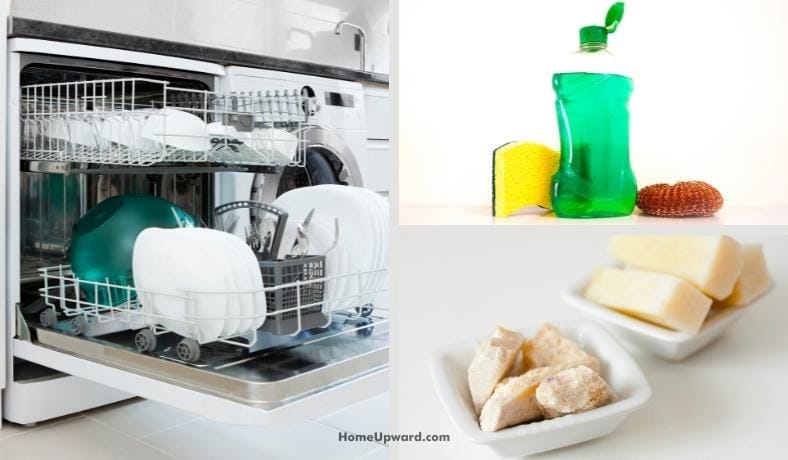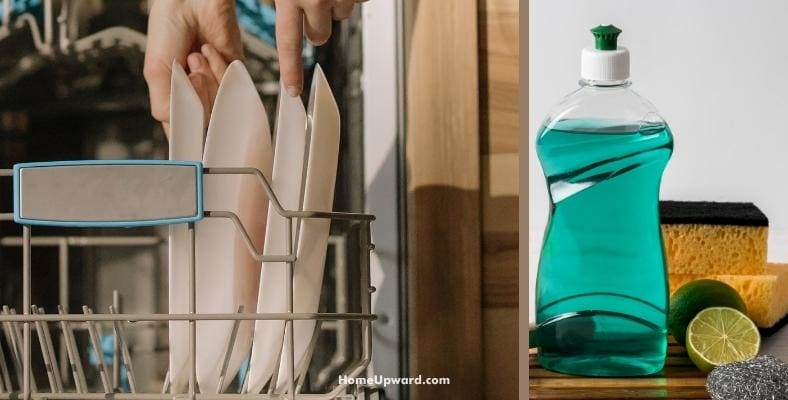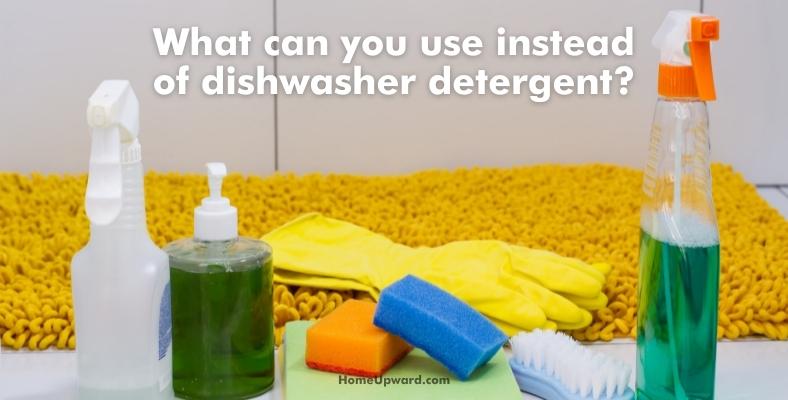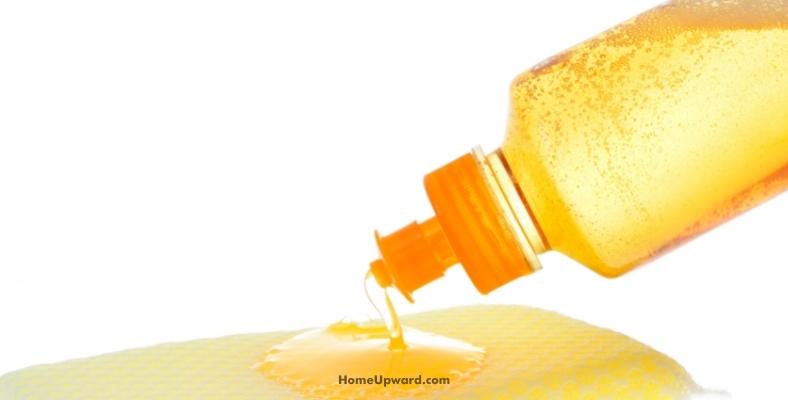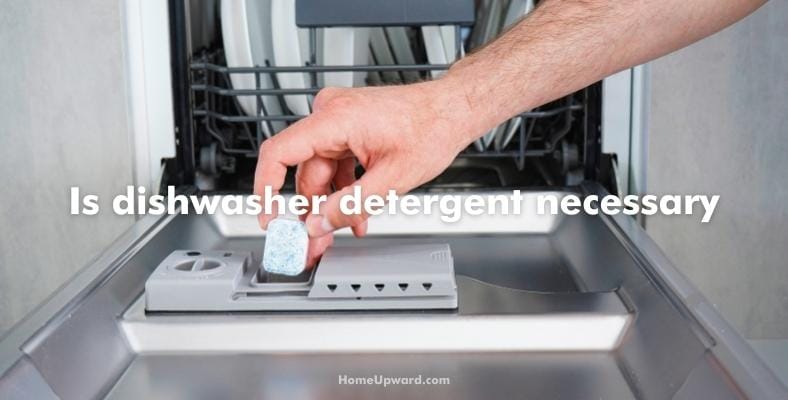Contents
Can You Use Dish Soap in a Dishwasher?
No, you shouldn’t use dish soap in a dishwasher. Even though they both have the word “dish” in their names, liquid dish soap and liquid dishwasher detergent are two very different things.
Dishwasher detergent works to get dishes clean by using enzymes to remove food and grease. Both of these detergents accomplish the task of washing dishes but the way they work is definitely different between the two.
As hot water jets around the inside of your dishwasher the enzymes are spread over the dishes. Water pressure and enzymes work in concert to get dishes clean.
Liquid dish soap and dish detergent are both formulated to break down food and stains on dishes with mounds of thick suds. Dish soap and detergent are each designed to clean dishes. Both come in liquid form but they’re not interchangeable.
Put regular liquid dish soap instead of dishwasher detergent in your dishwasher and you’ll quickly have a soapy mess. A flood of suds can fill the dishwasher and spill out of its door.
What Do You Do if You Put Dish Soap in the Dishwasher
If you’ve accidentally or purposely put regular dish soap, or even hand soap, in your dishwasher instead of dishwasher soap and start to see suds, don’t panic. Instead:
- Stop the soap suds by turning off your dishwasher immediately.
- You’ll need to grab some towels and a mop to wipe away the suds and water.
- Once the suds are under control, remove the dishes from the dishwasher and place them in the kitchen sink. You’ll want to rinse and dry them by hand.
- The next step is to wash out the soapy residue by switching your dishwasher to the rinse cycle.
If this ends up with water and suds spilling out of the dishwasher you might have to go through the process of turning off the dishwasher. Allow time for suds to drain and then rinse again multiple times until it’s back to normal.
What Can You Use Instead of Dishwasher Detergent?
You still have dirty dishes inside your dishwasher but no dishwasher tablets. What can you do besides head to the supermarket or discount store to buy more detergent? What else you can add to your dishwasher in a pinch?
Can You Use Shampoo to Wash Dishes?
Using shampoo instead of dishwashing detergent to clean dishes is a bad idea – it can make as big a mess as using dish soap would. It can also have additional ingredients or chemicals you shouldn’t have on dishware.
Save the shampoo for your hair and keep it out of your dishwasher.
Other soap options that can make a mess in your dishwasher and kitchen include liquid hand soap, body wash, and all-purpose cleaner. Like Dawn dishwashing liquid, they can flood your kitchen with suds.
Is It Ok To Use Laundry Detergent to Wash Dishes?
Laundry detergent and dishwashing detergent both have “detergent” in their names and come in pods and liquids, but they’re very different. Like liquid dish soap, laundry detergent will make enormous amounts of suds that spill out of your dishwasher.
Laundry detergent also has additional ingredients that help clean clothes but could make you sick or even cause harm if ingested, meaning it’s a really bad idea to use it for washing dishes.
Can You Make Your Own Dishwasher Detergent?
Yes, you can! If you’re out of dishwasher detergent you can make a batch of DIY homemade dishwasher powder. It’s also a nice option to save money or have more control over what’s in the cleaning products you use.
DIY dishwasher detergent recipe
- Combine one cup each of washing soda, baking soda, and kosher salt together.
- Store the mixture in a large jar or sealed bag to keep out moisture (a glass jar is especially good).
- Optional: Add a few drops of fresh-scented essential oils to the detergent dispenser in your dishwasher when adding the dry mix when it’s time to do your dirty dishes.
Is Dishwasher Detergent Necessary
Yes, dishwasher detergent is necessary if you’re not hand washing your dirty dishes. Dishwasher detergent has a number of other important various substances and all of them have a job to do:
- Enzymes break down protein-based food particles.
- Anti-corrosion agents help protect the dishwasher from becoming damaged.
- Non-ionic surfactants break up oils and soften up hard water that might damage the dishes or the washer. Some detergents also contain phosphates to reduce limescale buildup. However, detergents like this are becoming rarer due to the damage they can cause to the environment.
If you’re not interested in using your dishwasher to do the entire job you can use it for disinfecting. Place hand-washed kitchenware in your dishwasher and run a rinse cycle after adding white vinegar or a rinse aid as needed.

